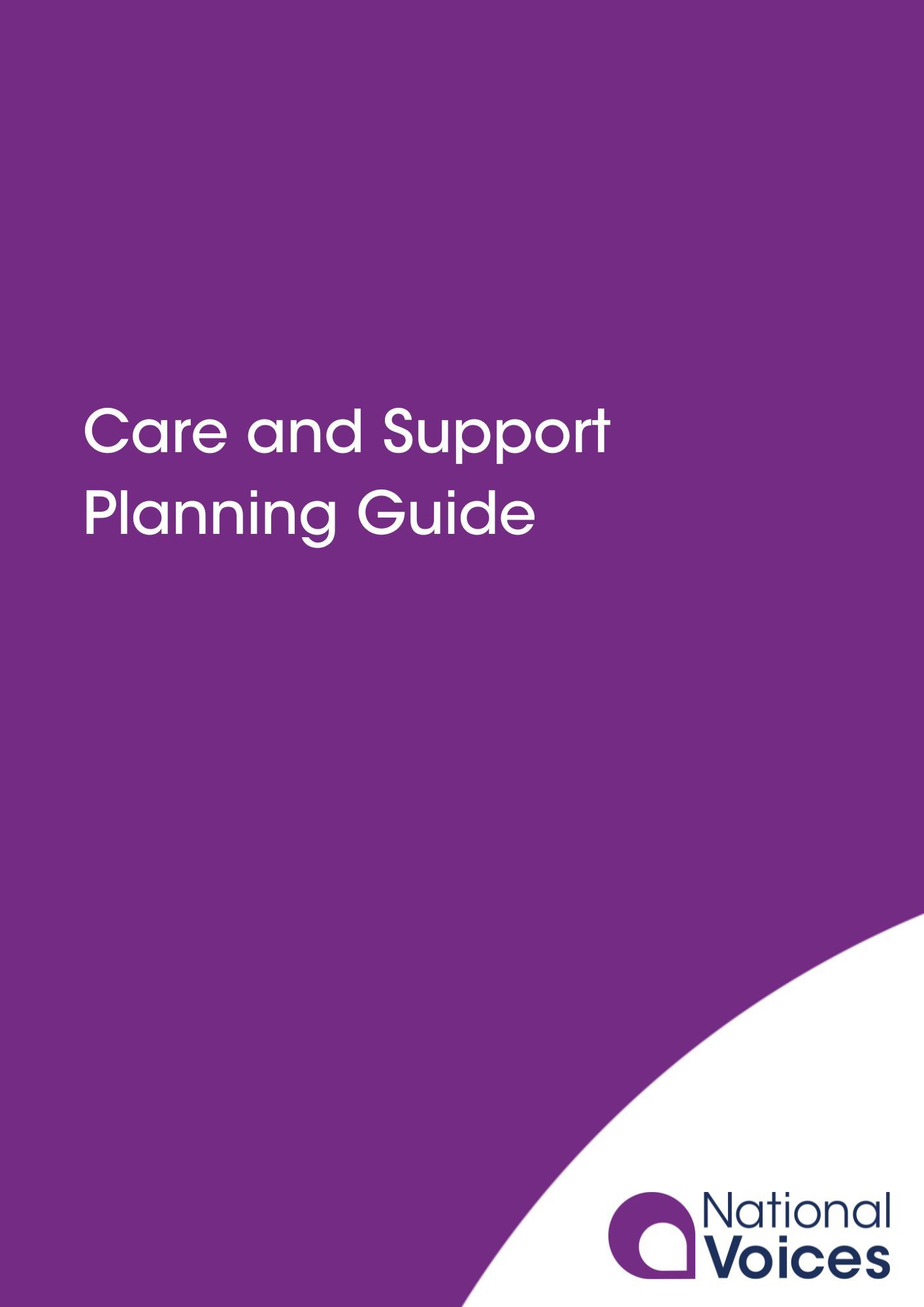
Care and Support Planning Guide
- Person-centred care
- Lived experience
The Care and Support Planning Guidance provides an introduction to care and support planning. It introduces the four stages of the approach and what should happen at each stage. It also includes some information about how care and support planning can help. The guide can help anyone – people with needs, or health and care professionals – to understand and take part in this process.
What is care and support planning?
Care and support planning is a defined process which helps people set their own aims, and then secures the support and care that are needed to achieve them. It is the key that unlocks person centred, coordinated care. It is about working with a care and support partner to think about:
• what is important to you
• things you can do to live well and stay well
• what care and support you might need from others
Care and support planning is for anyone who has health and care needs over time.
Why do we need care and support planning?
You live with your condition and/or disability every day and make decisions about how to manage it. Over time, you learn what works best for you, what information, care and support you need and how it fits into your life.
The professional or supporter you work with could be a doctor, nurse or social worker, another professional or someone from a support organisation.
They bring the skills and knowledge to help you understand your condition or disability and the choices for monitoring, treatment and available support.
Care and support planning makes the best use of you and your professional or supporter’s expertise and the time you spend together.
If you would like to read this guide in an alternative format, please get in touch.